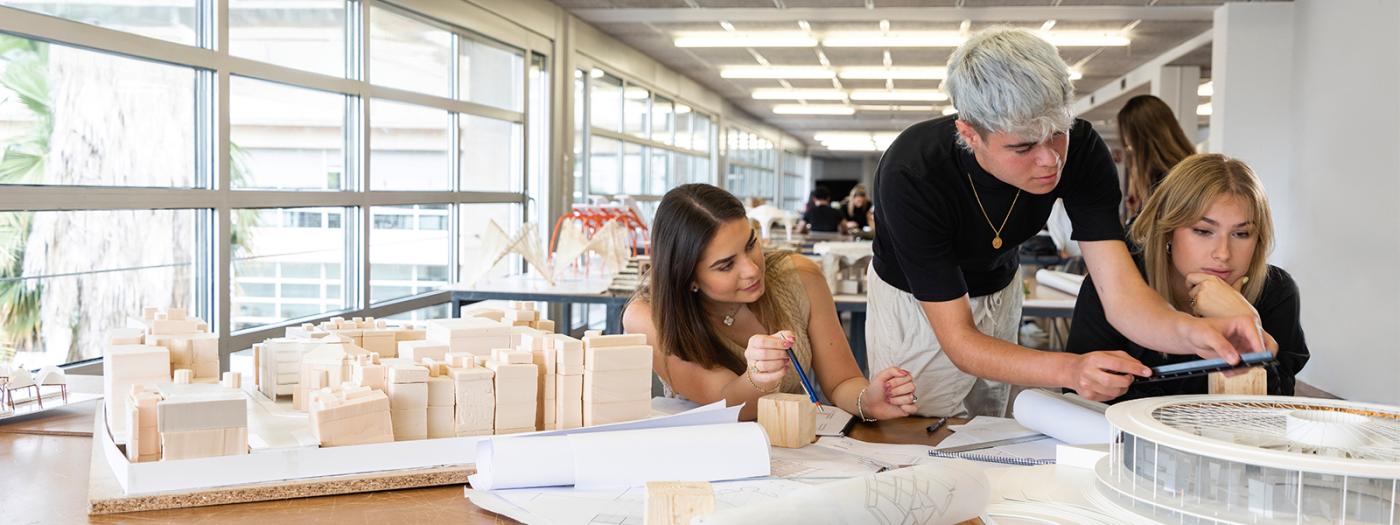· Deepen knowledge of architecture, distinguishing the banal and superfluous from what adds value, timelessness. Delve into the modes of thought and methods of conceiving form in modernity.
· Acquire curiosity as a driving force for learning: asking questions, challenging the apparent. Being active, aware of critical positioning, initiating abstract thinking.
· Ability to develop a research process to provide a unitary, original, and structured interpretation of the object of study, from different approaches and scales, in an academic format.
· Ability to organize group and individual work processes, and to convey new knowledge with rigor, precision, and expressiveness, both orally and in writing and graphics (drawings, photographs, and models).
The topics covered relate to various building typologies of modern architecture. For example, exhibition pavilions, schools, residential buildings, churches, etc., which allow, on one hand, the extraction of common characteristics of the type, and on the other hand, the discovery of different ways of approaching the project, in relation to the location, author, or era. The study is carried out from project criteria, ranging from site and historical context to the resolution of construction details, to unveil the principles of form. The joint work of the entire class in workshops and presentations allows for expanding knowledge among other students about the different episodes in the history of modern architecture. In classes, basic knowledge is provided, and even more importantly, tools for understanding. The goal is to open up new perspectives, but above all, to place the student in a position to discover on their own.
The research work on the buildings is structured in the following phases:
1. Information phase (collection and evaluation of sources)
2. Analysis phase (redrawing and modeling at different scales of representation)
3. Writing and proposal phase (descriptive report and presentation in dossier and PowerPoint format)
In addition to the partial submissions of each of these parts, various artistic exercises (photography, collage, model) expressing the underlying architectural concepts in the works are carried out throughout the course. This also includes reading and commenting on critical or propositional texts of modernity, in relation to other disciplines (art, photography, film) around architecture, presented in an academic text format (citations, photographs, references).
Problem-solving and exercise classes
Laboratory practices
Seminars
Self-paced learning
Project-based learning
Flipped classroom
Gamification
Peer instruction
Real-world events
Challenge-based learning
Case method
Lectures
Exams
Assignments
Internal/External Reports
Exercises, problems, practices
Projects
Group/Individual Presentations
Self-evaluation
Class participation/attendance
Critiques by a panel/jury
